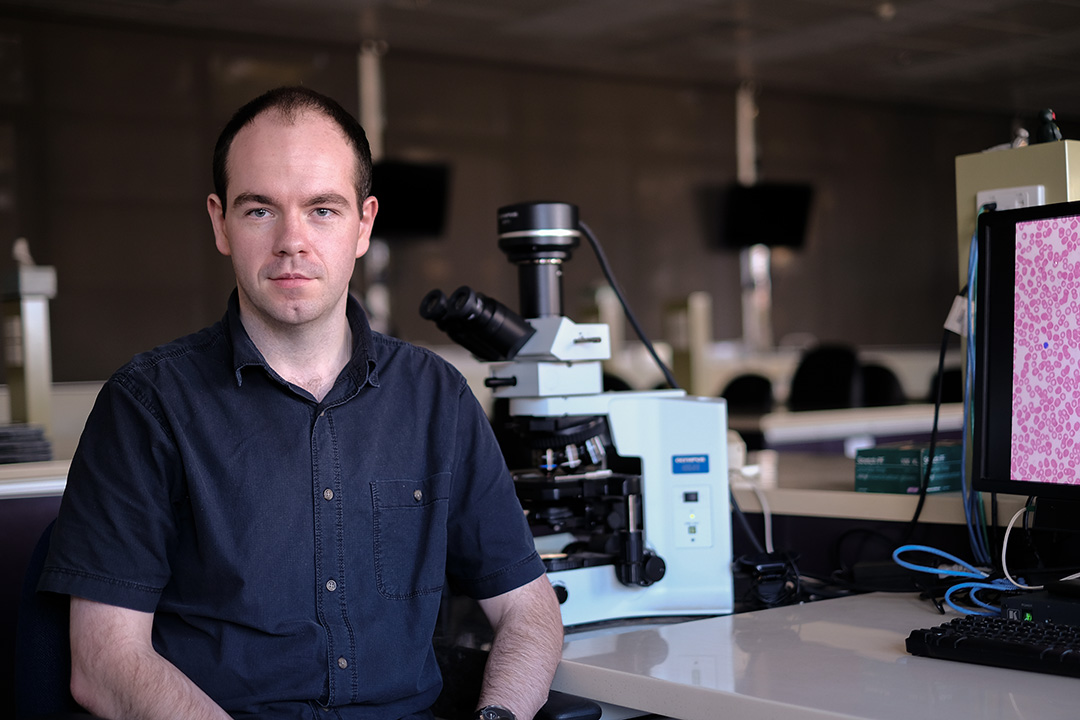To celebrate International Day of Immunology this Friday 29 April, we had a chat to biomedical scientist Dr Richard Charlesworth from UNE's School of Science and Technology about his research into autoimmunity, and how a coeliac disease diagnosis as a teenager led him down the fascinating path of immunology.
Can you tell us a bit about the work you're doing in the immunology space?
My work in immunology centres around autoimmunity and conditions where the immune system mistakenly attacks the body’s own tissues.These are fascinating conditions and we are only just beginning to understand what leads to a breakdown in tolerance of the immune system and the subsequent inappropriate immune reactions.
I focus mainly on coeliac disease, an autoimmune condition which affects around 1 in 100 people worldwide and is characterised by an immune reaction against gluten, which is a harmless protein found in wheat, barley and rye.
What sparked your interest in this field?
I was diagnosed with coeliac disease when I was 15, and I started to research this area to understand more about the condition. As with all research in science, I was left with more questions than answers in the end, but that is what keeps research discovering and pushing further!
This year’s theme for International Day of Immunology is Vaccines. What role do you think vaccines play in modern medicine?
Vaccines are critical in preventing severe illness, particularly among vulnerable people in the community. When you are infected with an organism, it takes time for your immune system to learn how best to destroy the threat. The issue with this delay however is that it can give the organism time to grow and multiply, leading to serious disease. Vaccination uses inactive or dead organisms, or pieces of organisms to prime the immune response before you come into contact with the real thing. This means the immune system can respond much more rapidly and effectively and prevent serious damage to the body.
The recent discourse surrounding vaccines in light of the pandemic and the growing public distrust has been of great concern to the scientific community. Vaccines are a safe and effective tool founded in fundamental immunology and supported by decades of research and testing.
What would you say to someone considering entering the Immunology field?
Immunology is a huge area and research in immunology is very diverse. You can be working with animals, plants, bacteria or people and be doing anything from developing new treatments and vaccines, understanding the mechanisms of disease or working out how to better diagnose conditions.
I would say to anyone considering a career in immunology to develop a broad skill set in the lab, learn to be an effective communicator (immunology is a complex topic and good communication is vital) and don’t say no to opportunities as they present themselves. You never know what experience you can gain and share along the way.


